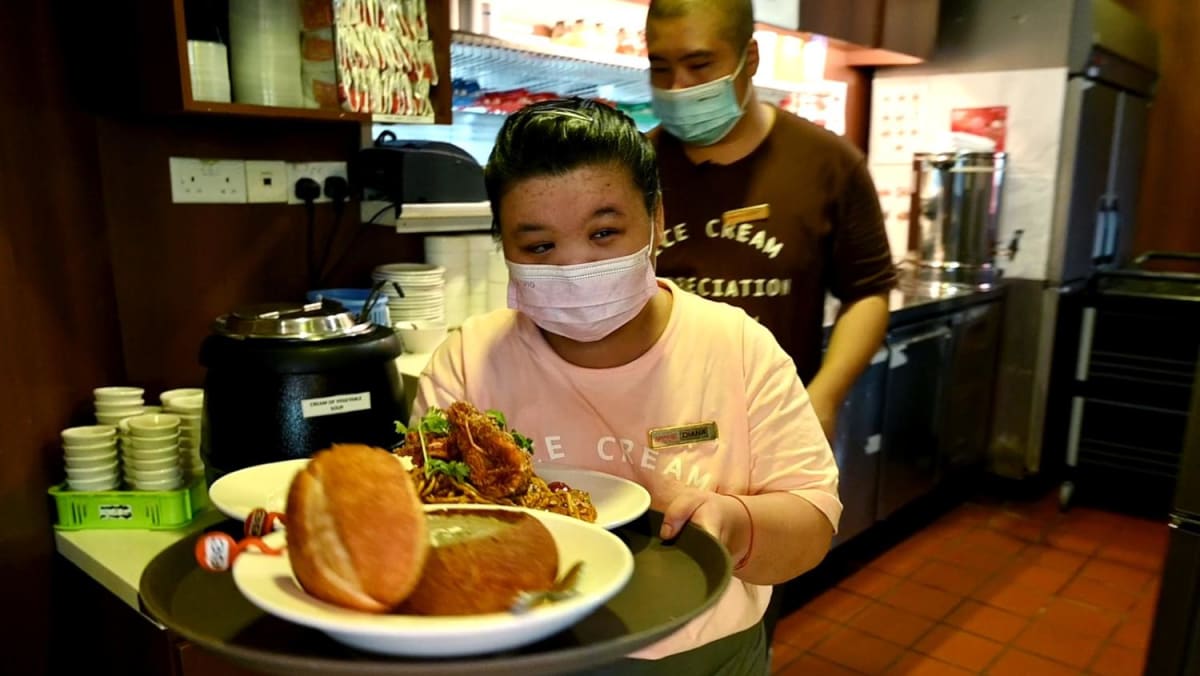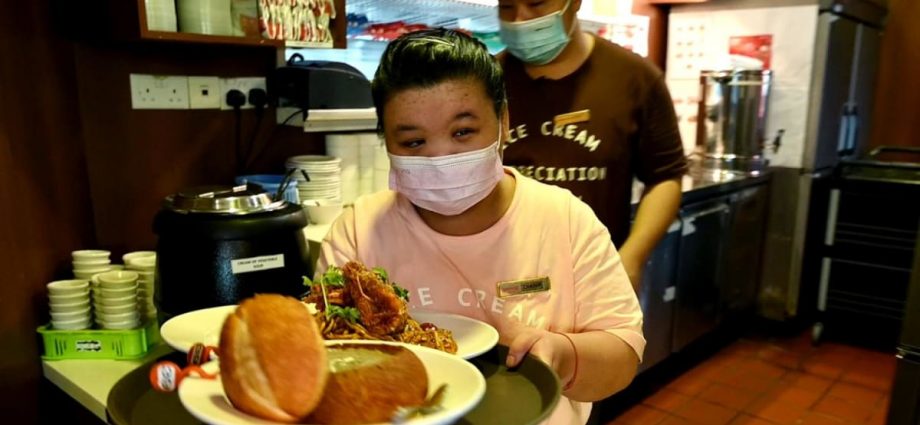
To qualify for Delta Senior School’s Workforce Skills Qualification programme, Secondary 4 students need to show baseline levels of literacy and numeracy. They must also have been present for 95 per cent of classes as a benchmark for attendance in future employment.
“Students must meet prescribed eligibility criteria for admission as we want to ensure that students are able to manage the demands of the programme,” said school principal Subash Lazar.
Eligible students will then go through a four-hour vocational profiling exercise to determine their abilities in the four sectors and be assigned to one of them. Delta Senior School staff will speak to parents and consider the students’ interests and preferences.
“What we’re looking out for is not their raw competencies, but their affinity for the different types of tasks in the various industries,” Mr Subash said, adding that students are asked to complete generic tasks in different stations to assess things like balance, agility, strength and fine motor skills.
In the first two years of the programme, students will take core subjects like literacy and numeracy as well as physical and character education. They will also go through vocational courses in school to be certified in a specific job for their assigned sector.
During this period, vocational trainers and job coaches will assess students on their work readiness before mapping them to a company.
“Here, there’s no pressure because it’s all in-house. They are taught everything, they can make all kinds of mistakes. They’re not out there in the authentic stations,” Mr Subash said.
Still, he stressed that the training will include a “sense of realism” to ensure students build towards competencies for actual jobs.
“We must be nice, caring and supporting but we cannot be overly caring and nice until we render them incompetent for the real world,” he said.
“So if there are safety violations during training, we will not hesitate to remind them in a very stern manner that this must not happen in the worksite.”
Vocational trainers will also give feedback to job coaches and identify students who need more support. These students will likely be assigned to back-end roles doing more routine tasks to ensure they are set up for success, Mr Subash said.
Front-facing customer service jobs involve a lot of “ambiguity”, he explained, noting that food orders are unlikely to be simple and include requests like less sugar or more sauce. This could be challenging for special needs staff, who thrive on set routines and instructions.
In the first semester of the third year, students will undergo two days of training at the workplace – supervised by vocational trainers – and three days of training in school. Trainers will observe gaps in students’ skills and brush up on them when they return to school.
The second semester will see students spend the full five-day week at the workplace and earn an allowance of around S$500 a month. Job coaches will drop by around once a week to check on their progress and whether they need more support.
“If the fella is coping well, I fade out. If the person is struggling and needs more support, I stay longer,” Mr Subash said.
“This fading in and out is critical because once they are employed, there is no hand-holding. The system is such that you cannot be hand-holding them forever because you must let them realise that they can be independent.”
In the fourth year, students will be attached to a company and work six days a week without supervision from the school, earning about S$720 a month.
This is when the employer can offer students a job at any point during the year, with a monthly salary of between S$1,500 and close to S$2,000, Mr Subash said. Those who do not get an offer throughout the year will go into a fifth year of work attachment.

